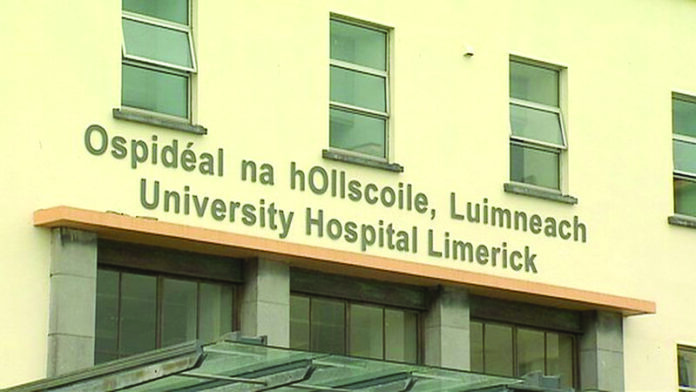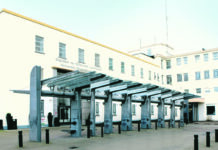
UNIVERSITY Hospital Limerick (UHL) is asking ill people to consider whether another medical route is available to them as the hospital tackles huge numbers of patients currently in need of emergency care.
The hospital was the most overcrowded nationally today (Monday) with 143 admitted patients on trolleys according to figures released by the Irish Nurses and Midwives Organisation (INMO).
Scheduled activity across all sites has been deferred for tomorrow (Tuesday) and will remain under review, with only urgent and time-critical patients, including cancer patients, going ahead.
In an appeal for patients to consider all treatment options available, a spokesman said the hospital is “currently experiencing extremely high demand and we are appealing to the public to consider all care options before presenting at our emergency department”.
“We have been caring for an exceptionally high number of unwell medical patients in the hospital, and the emergency department has seen its highest week of emergency presentations since the beginning of the year (1,716 to 8am this morning, a daily average of 245 patients)”.
The spokesman said the hospital is currently at its highest state of escalation, with surge capacity opened at UHL and across all the group’s hospitals.
“The emergency department remains open 24/7 and urgent care is being delivered to those who need it most. Anyone who comes to ED who doesn’t have a life-threatening or severe illness or injury will face a significant wait.
“We apologise to anyone who has had a long wait for admission to University Hospital Limerick in recent days, and to all who have been impacted by deferrals of surgery.”
The hospital is encouraging people to make use of all available alternatives to ED, including local pharmacies for minor ailments; family doctors and out-of-hours GP services; and the Injury Units at Ennis, Nenagh and St John’s Hospitals.
“We thank the public for their patience at this time of exceptionally high demand for hospital services, and ask them to continue supporting us in ensuring emergency care is prioritised for the sickest, most seriously injured and frailest patients”.









